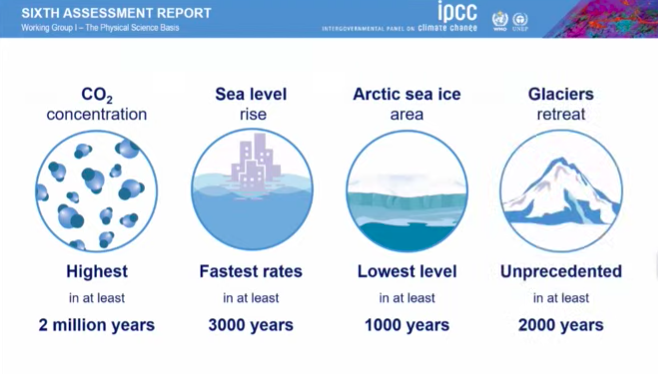
The website of the Intergovernmental Panel on Climate Change (IPCC) crashed Monday as the UN body presented its latest scientific assessment on climate change.
Returning an "error establishing a database connection" the IPCC website appeared to have suffered the equivalent of a DDoS from the flurry of global interest.

The organisation had chosen to stream its press conference via YouTube and share assets via an open Trello board however, both of which remained available through Monday morning.
The outage is a sharp reminder that organisations may want (at minimum) to contact their hosting provider to understand the limits of their hosting plan ahead of a high profile product or report launch.

It's Planet Earth's hosting plan that most need to be more concerned about, of course, and the IPCC report makes a number of deeply concerning warnings on that front.
The IPCC report "Climate Change 2021: the Physical Science Basis" warns that "unless there are immediate, rapid and large-scale reductions in greenhouse gas emissions, limiting warming to close to 1.5°C or even 2°C will be beyond reach."
At 1.5°C of global warming, there will be increasing heat waves, longer warm seasons and shorter cold seasons. At 2°C of global warming, heat extremes would more often reach critical tolerance thresholds for agriculture and health, the first part of the IPCC’s Sixth Assessment Report (AR6) found August 9.

This report is a reality check,” said IPCC Working Group I Co-Chair Valérie Masson-Delmotte. “We now have a much clearer picture of the past, present and future climate, which is essential for understanding where we are headed, what can be done, and how we can prepare.”
The IPCC has for the first time shared an interactive atlas -- which lets users conduct flexible spatial and temporal analyses of much of the observed and projected climate change information, including for the first time regional synthesis for Climatic Impact-Drivers (CIDs).
That can be found here.
